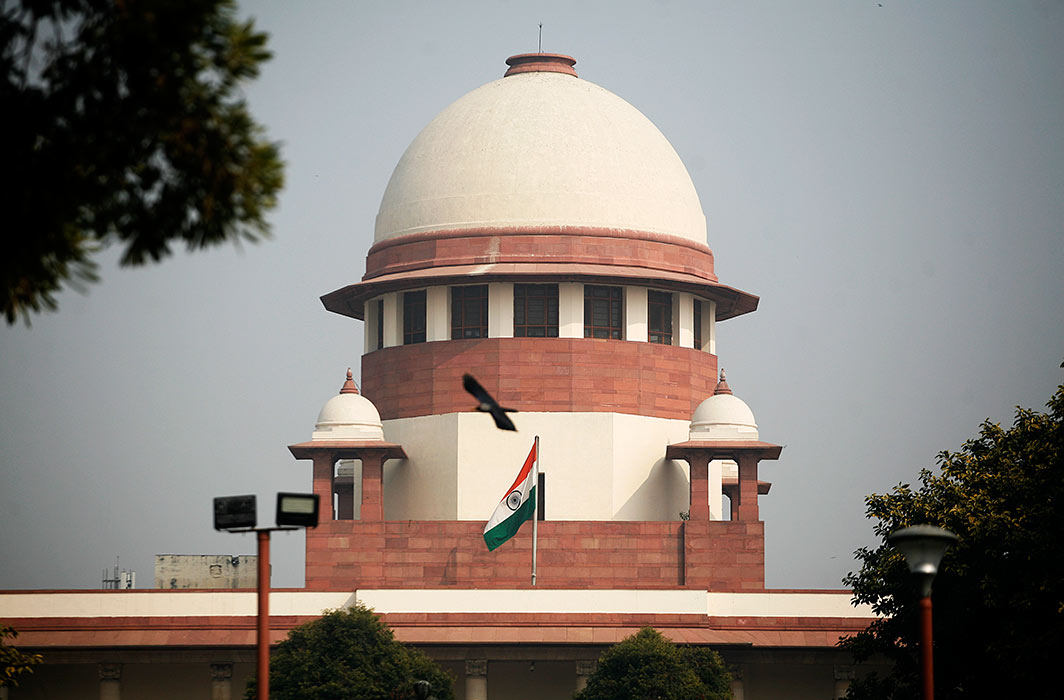"States obligated to collect quantifiable data for representation of people belonging to SC/ST": Supreme Court on Reservations in Promotions

The Supreme Court on Friday held that the states are obligated to collect quantifiable data for determining the representation of Scheduled Castes and Scheduled Tribes (SCs and STs) in the state in the issue of extending reservation in promotions. [Jarnail Singh Vs. Lachhmi Narain Gupta].
A division bench of Justice L Nageswara Rao and Justice BR Gavai while pronouncing the judgment said, “The review has to be conducted for the purpose of determining representation of the people belonging to the SC and ST category by the State before implementing reservation quota in the promotion.”
Several states had approached the Supreme Court in a Special Leave Petition as many High Courts had struck down the provisions providing reservation in promotion along with an application seeking clarification in the Jarnail Singh case.
The bench has further noted that the time period may be determined for the purpose of revisiting the reservation policy for determining the percentage of posts occupied by the SCs and STs. Whereas, cadre will be the unit for the collection of the quantifiable data. "The collection cannot be with respect to the entire class/class/group, but it should be relatable to Grade/Category of the post to which promotion is sought. Cadre should be the unit for collecting quantifiable data," the bench added.
It has also been said that the bench cannot set a yardstick to determine inadequacy in the representation of SCs and STs.
It has been further noted that the bench has not expressed any opinion in the specific cases, whereas, made batches of cases on the basis of the issues and listed the two or three groups on 24th February 2022 on which the bench will deal with the issues respectively.
Earlier, The Supreme Court had reserved its judgment in the case after hearing Attorney General KK Venugopal, Additional Solicitor General Balbir Singh, Senior Advocate Paramjit Patwalia for the State of Bihar, Senior Advocate Rajeev Dhawan, Senior Advocate Indira Jaising for Unreserved Category, Senior Advocate Gopal Sankaranarayanan, Senior Advocate Rana Mukherjee, Senior Advocate Dinesh Dwivedi for Association of SC/STs and others Counsels. Arguments may be read here.
Background
The Apex Court in the litigious chain of “Jarnail Singh” on September 26, 2018, held that the judgment in Nagaraj does not need to be referred to a seven–hudge bench but stated that the conclusion in Nagaraj that the state has to collect quantifiable data showing backwardness of the Scheduled Castes and the Scheduled Tribes, being contrary to the nine-judge bench in Indra Sawhney (1) (supra) is held to be invalid to this extent.
The bench in its judgment dated September 26, introduced the principle excluding the creamy layer, while further directing States to refrain from extending reservation to SC/STs falling into the category of creamy layer.
The judgment of Nagaraj had said, "We reiterate that the ceiling-limit of 50%, the concept of creamy layer and the compelling reasons, namely, backwardness, inadequacy of representation and overall administrative efficiency are all constitutional requirements without which the structure of equality of opportunity in Article 16 would collapse."
"The main issue concerns the "extent of reservation". In this regard the concerned State would have to show in each case the existence of the compelling reasons, namely, backwardness, inadequacy of representation and overall administrative efficiency before making provision for reservation. As stated above, the impugned provision is an enabling provision. The state is not bound to make reservations for SCs/STs in matter of promotions.
However, if they wish to exercise their discretion and make such provision, the State has to collect quantifiable data showing backwardness of the class and inadequacy of representation of that class in public employment in addition to compliance of Article 335. It is made clear that even if the State has compelling reasons, as stated above, the State will have to see that its reservation provision does not lead to excessiveness so as to breach the ceiling-limit of 50% or obliterate the creamy layer or extend the reservation indefinitely," the Nagaraj judgment had penned.
Case Title: Jarnail Singh Vs. Lachhmi Narain Gupta
